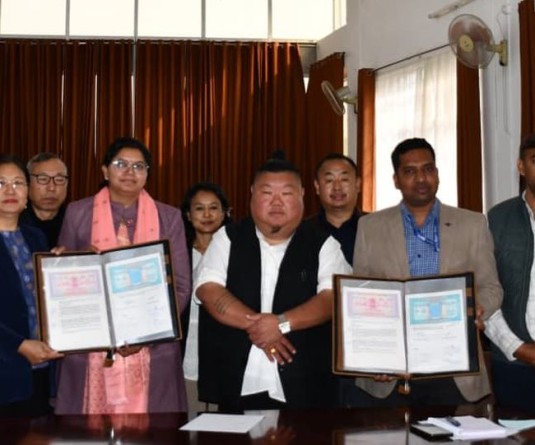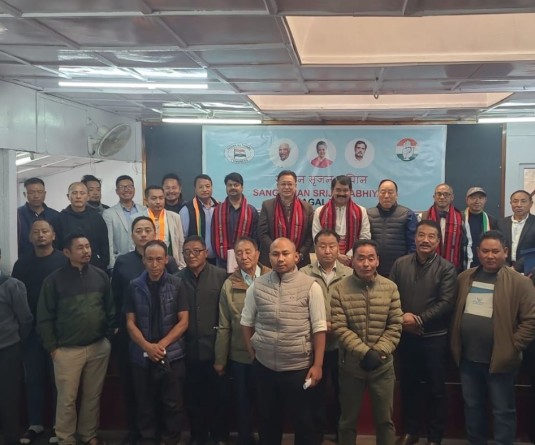Participants and resource persons at the awareness programme on Women’s Health hosted by Kohima College, in collaboration with its Women’s Cell and the Internal Quality Assurance Cell (IQAC) as part of its flagship initiative—Bridge Project: Connecting Academic Institutions with Local Communities.

KOHIMA, MAY 4 (MExN): Kohima College, in collaboration with its Women’s Cell and the Internal Quality Assurance Cell (IQAC), organised an awareness programme on “Women’s Health” at the college conference hall as part of its flagship initiative—Bridge Project: Connecting Academic Institutions with Local Communities.
The event was aimed at sensitising and educating women from the local community on various aspects of health and wellness, with particular focus on self-care and preventive healthcare.
The programme was chaired by Dr Limayangla Pongener, Assistant Professor in the Department of English, who also delivered the welcome address. She highlighted the need to prioritise women’s and mothers’ health, which she noted often takes a back seat within traditional family structures. Her address set the context for the central talk delivered by the resource person, Dr M. Nukshisangla Jamir, MD (Community Medicine), Joint Director, Nagaland State AIDS Control Society.
Dr Jamir conducted an extensive and interactive session, addressing a wide range of health issues affecting women across different stages of life. She emphasised how women frequently deprioritise their own health while caring for their families, leading to preventable health conditions such as malnutrition, autoimmune diseases, depression, sleep disorders, and complications during and after menopause.
A significant part of her presentation focused on the “1000 Days Concept”, which marks the critical window between conception and a child’s second birthday. Dr Jamir underscored that adequate nutrition and medical care during this period are essential for a child’s optimal cognitive and physical development. She advocated for at least four antenatal check-ups, initiation of breastfeeding within the first hour of birth, exclusive breastfeeding for the first six months, and continued breastfeeding up to two years.
Other key health topics discussed included menstrual hygiene, breast and cervical cancer awareness, obesity, diabetes—including gestational diabetes—osteoporosis, and sexually transmitted infections (STIs). Dr Jamir also highlighted the importance of regular breast self-examinations, safe disposal of sanitary products, the role of a balanced diet and physical activity, and healthcare services available through state-sponsored schemes such as the Chief Minister’s Health Insurance Scheme (CMHIS).
The session concluded with an interactive Q&A segment, where community participants were encouraged to raise questions and share personal health concerns. The programme ended with a vote of thanks by Dr Medongunuo Ngone, Assistant Professor in the Department of English, Kohima College.
With 33 participants from the local community, the awareness drive was well-received and reaffirmed Kohima College’s ongoing commitment to community engagement and the promotion of women’s health and well-being.




